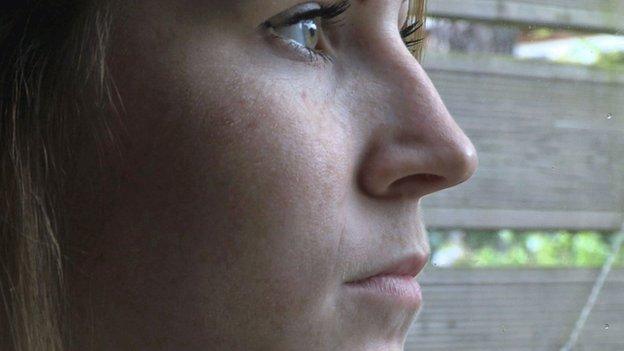'My vision is like looking through a straw'
- Published
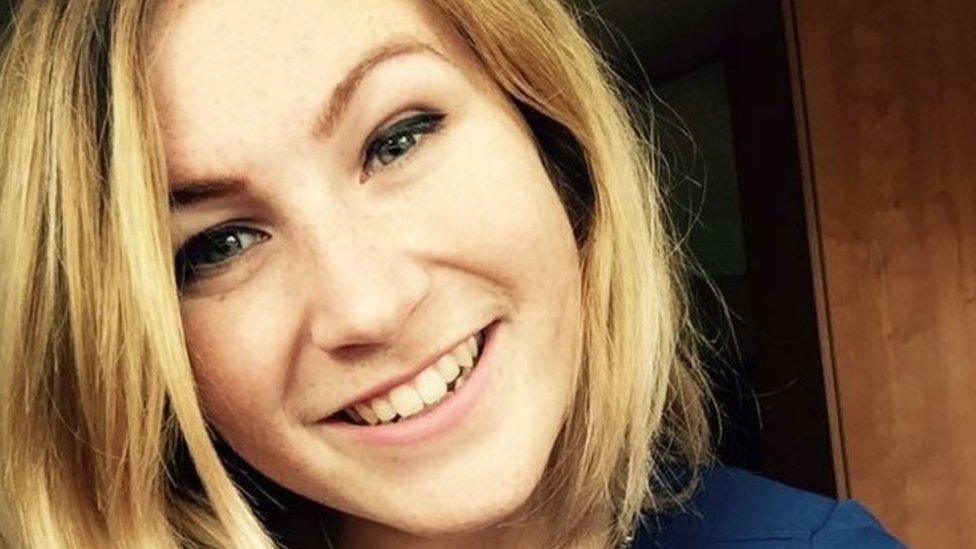
Teenage years can be fraught with dilemmas. But what if you are deaf and fast losing your sight too?
Molly Watt was born severely deaf and learned to lip read. But, at the age of 12, she was diagnosed with Usher syndrome, a degenerative disease which causes sight and hearing loss.
Now aged 22 she has just 5% of sight left in one eye.
"My vision is like looking through a straw," she says.
"There's lots of flashing lights in my 'good' bit and I just have to learn to avoid them. On a bad day, I don't see a lot at all.
"The worst case scenario for any deaf person is to lose their sight. Usher syndrome is not a death sentence but it is incredibly challenging. Without awareness and appropriate support, it is easy to fall into depression and despair - I've been there."
The loss of Molly's sight was rapid, and within two years of being diagnosed she was registered blind.
"My parents knew about my Usher syndrome diagnosis on the day, however, I was unaware of the seriousness of the condition. It wasn't until I was experiencing the deterioration in my vision that I started asking more questions.
"By the age of 15 I did my own research and that's when I first saw the word 'blind'. It's difficult to accept losing any sense but so much worse when it is the one you most rely on."
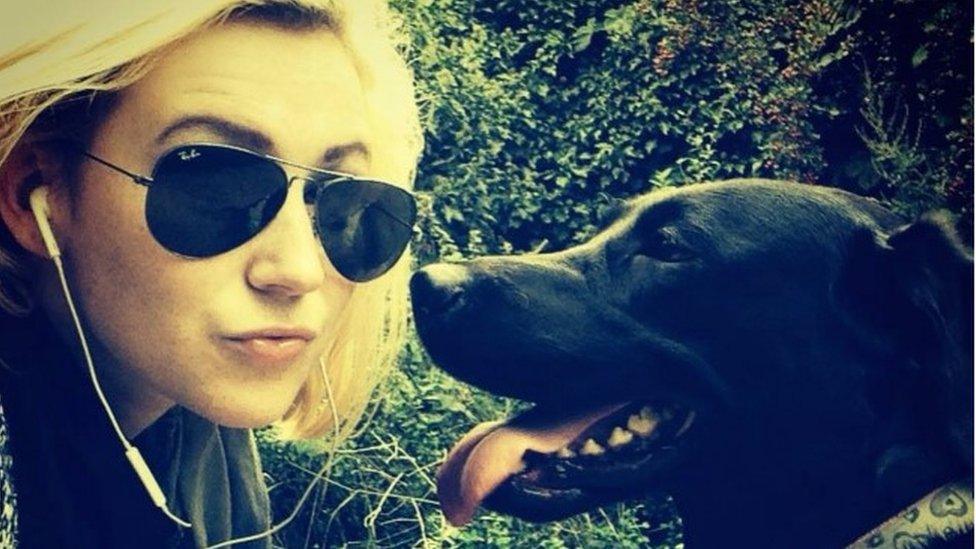
Usher syndrome is the most common cause of deafblindness and impacts mobility and balance and can lead to depression. The term 'deafblind' refers to a spectrum of hearing and sight loss.
Emma Boswell, the national coordinator from the charity Sense, says there is not an average age for people being diagnosed with Usher, although assessments for cochlear implants now include an eye test which has increased the speed of diagnosis.
"When a person finds out about their diagnosis, it can be very frightening, upsetting and presents an unknown future," she says. "Some parents won't tell their child as they want to keep their diagnosis quiet until they are older."
Molly grew up in Maidenhead with three siblings - two brothers and a sister - and says her relationship with them has been affected by Usher.
"I had already established a long time ago I was not like my siblings. Sadly I was always seen as the 'favourite' child because I was always being taken out to appointments. As my brothers matured and realised my reality could have been theirs, they were quick to realise they are in fact lucky.

Usher Syndrome
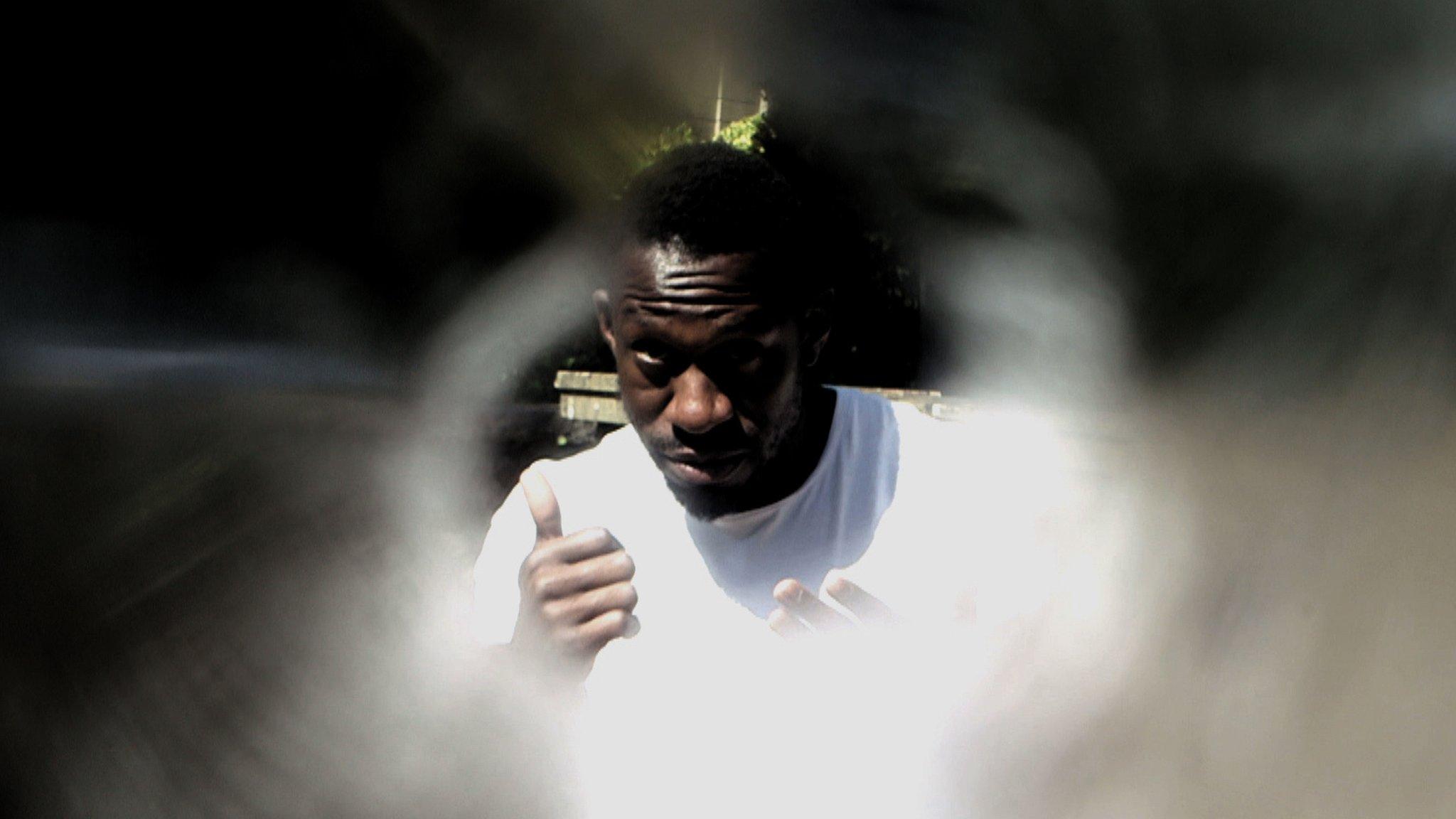
BBC See Hear created images of what some people with Usher syndrome experience
Usher syndrome is a degenerative condition which combines deafness with a visual impairment called Retinitis Pigmentosa, an eye disease of the retina that affects peripheral vision and causes night-blindness.
It is believed to have a prevalence rate from 3.2 to 6.2 per 100,000 people.
Information: Sense

Speech therapy helped Molly to talk and lip-read and she went to mainstream school until the age of 14, when she moved to a deaf boarding school.
She says she was "excited to be like everyone else" but was bullied which exacerbated her depression and anxiety. After taking a year out she returned to mainstream education.
Her experiences are often dictated by the support she receives. While she says college restored her faith in humanity, she left university early due to a lack of assistance.
"Lecturers didn't have the time to understand my condition. Training and awareness sessions were set up for staff and nobody turned up.
"I just needed materials to be made accessible - large text, for lecturers to wear a radio aid that connected to my hearing aids - it's as simple as that."
Usher syndrome as a teenager comes with additional challenges such as negotiating a social life.
The majority of Molly's friends are hearing and sighted and she communicates with them through speech.
"I have to strategise everything I do. I am night-blind and so when I go out I would often ask to hang onto a friend. I will only go out with the close friends who do not make me feel a burden."

Boswell says some young people manage to "fit" within their circle of friends as they grow up, while others struggle.
"Some may feel left out of conversations if they are struggling to keep up with who is talking," she says. "Some teenagers may find it difficult to socialise with their friends in dark areas."
At 22 Molly is independent but relies on those around her to help as well using assistive technology.
She calls her Apple watch "invaluable" as it taps her wrist to alert her to a text or call, enables her to pay for items in shops and is more discrete than holding a phone.
She also wears hearing aids, which enable her to lower or increase the sound of the bass or cancel out background noise via an app. The first time she used it she discovered people could hear sound behind them.
The mental health of those with Usher syndrome can also be affected. Molly has bipolar disorder and severe anxiety triggered by the quick progression of Usher.
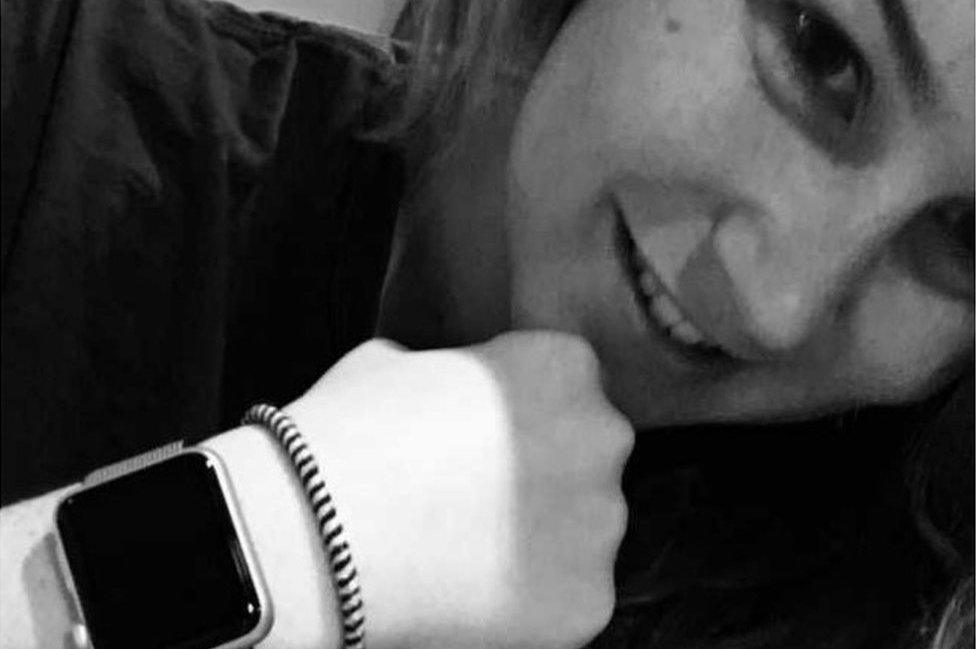
"It's been a rocky road of denial as it is hard to come to terms with an ever-changing progressive condition. Battling with depression and anxiety was a constant struggle as I never wanted to leave the house."
Boswell says the impact upon mental health can depend on the support offered and how open people are about the challenges they face. Those who keep quiet are more likely to become "isolated and distressed," she says.
Molly has set up her own charity - The Molly Watt Trust - to support others with Usher and has spoken at prestigious institutions including Harvard University and the House of Commons outlining how capable people with Usher are.
"The hardest thing about Usher syndrome is not knowing what the long term prognosis is," she says. "I am deafblind, but there is nothing wrong with my brain hence my determination to always find a way."
For more information on Usher Syndrome and how to receive support on this or other sensory impairments, please visit Sense, external.

For more Disability News, follow on Twitter, external and Facebook, external, and subscribe to the weekly podcast.
Related topics
- Published7 February 2017
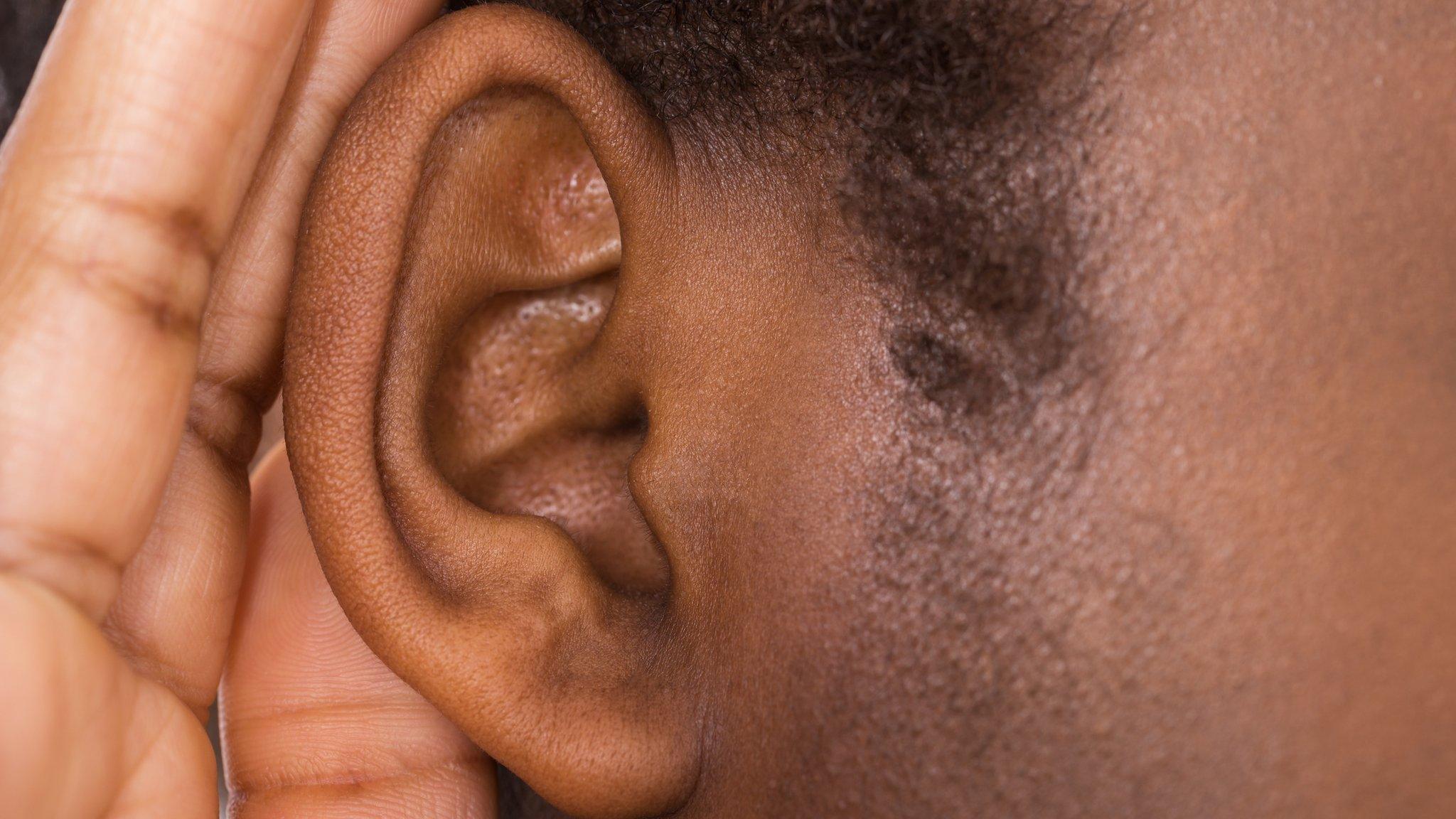
- Published14 June 2015
